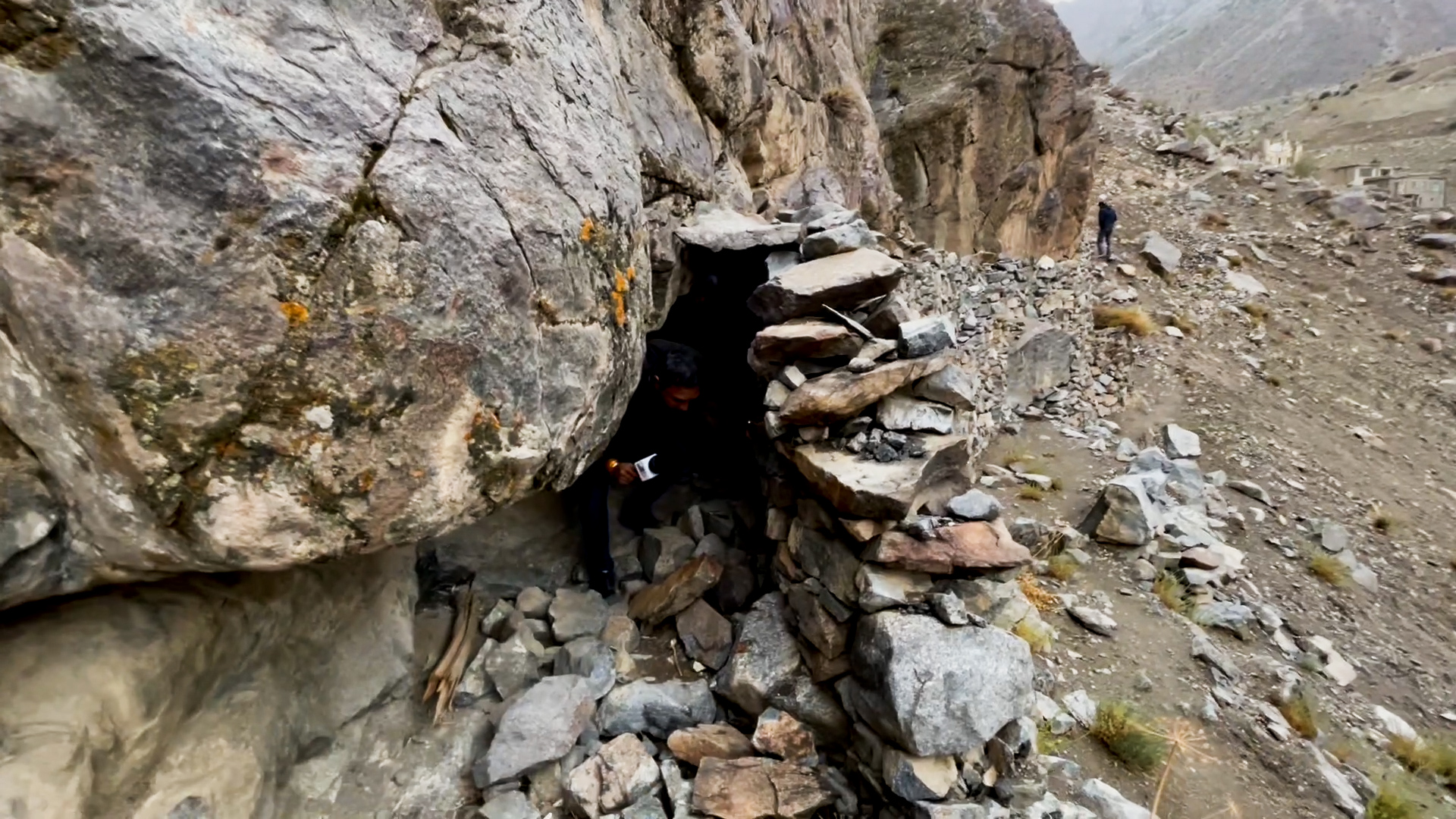HUNDERMAN, KARGIL: It’s been 23 years since Pakistan Army intruders tried to cut off Kashmir from India. While Kargil bore the intensity of the war, with our brave jawans thwarting the enemy’s evil designs, the villagers of the last village on the Line of Control recall the nights when they had to take shelter in a mountain cave to survive the Pakistani shellings.
The two decades seem to have little effect on their memories as villagers of Hunderman recalled the harrowing nights they endured for 40 days when The New Indian visited them.
“I was a teenager then. But I remember everything. How we discovered this big rock on the slopes of the mountain and converted it into a cave. We had to save everyone and we covered it with other stones,” Mohammad Baqir said.
Baqir, who is also the caretaker of the modest museum that preserves the memories of the 1971 war between the two nations at the eerie-looking old site of Hunderman village, showed The New Indian the mountain cave that became the talk of folklore.
ALSO READ: Last Village On Indo-Pak Border: Preserving Memories Of 1971 War
“Before 1971, this region was under Pakistan. Now the Indian Army is all around here,” Baqir said while adding, “Kargil war (1999) was a nightmare for us.”
“The shelling was happening from all sides. And we were trapped. Somebody discovered this case and we came over here,” he added.
Another villager Ghulam Hussain, who is a driver by profession and also dabbles as a porter for the Indian Army, said: “I still remember that we would stay in the cave day. At night, we would give food and water to our brave jawans who were fighting the battle.”
“Now, we have at least 34 families who live in this village. During the Kargil war, every one of us took shelter in the cave,” another villager Javed Ali recalled. “We stayed there for 40 days, till the war ended. At that time, we don’t know what will happen tomorrow. We just kept on hearing the deafening sounds of bombs,” he said while reliving the moments for The New Indian.
“All the houses in the village were damaged. The school behind you was destroyed,” Ali said. “After 1999, we picked our pieces. The school was rebuilt and now we are living peacefully,” he added.









